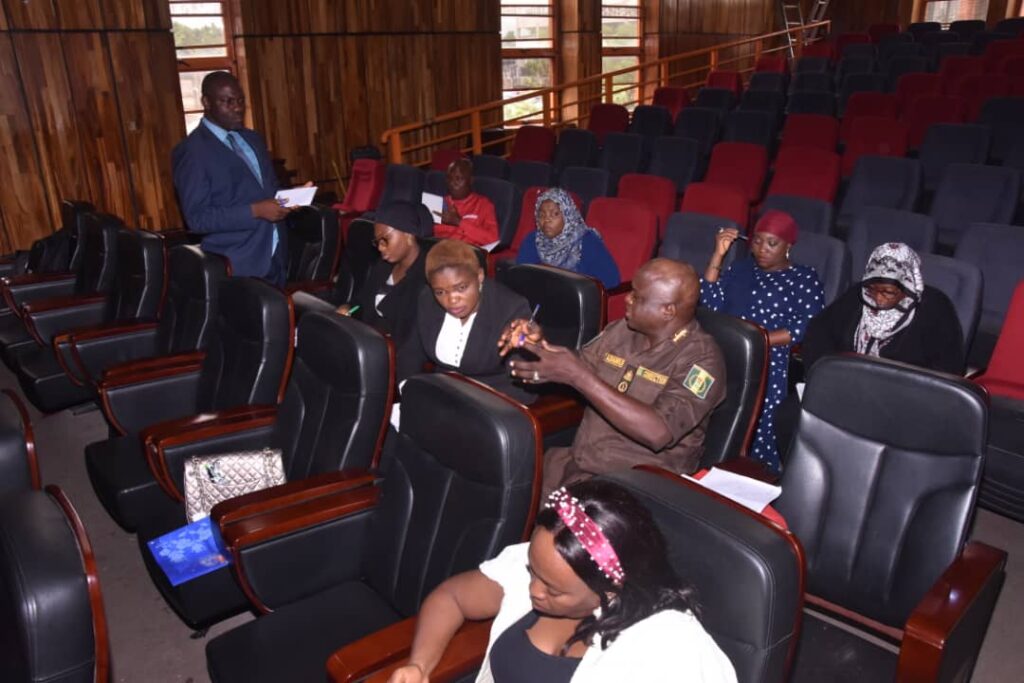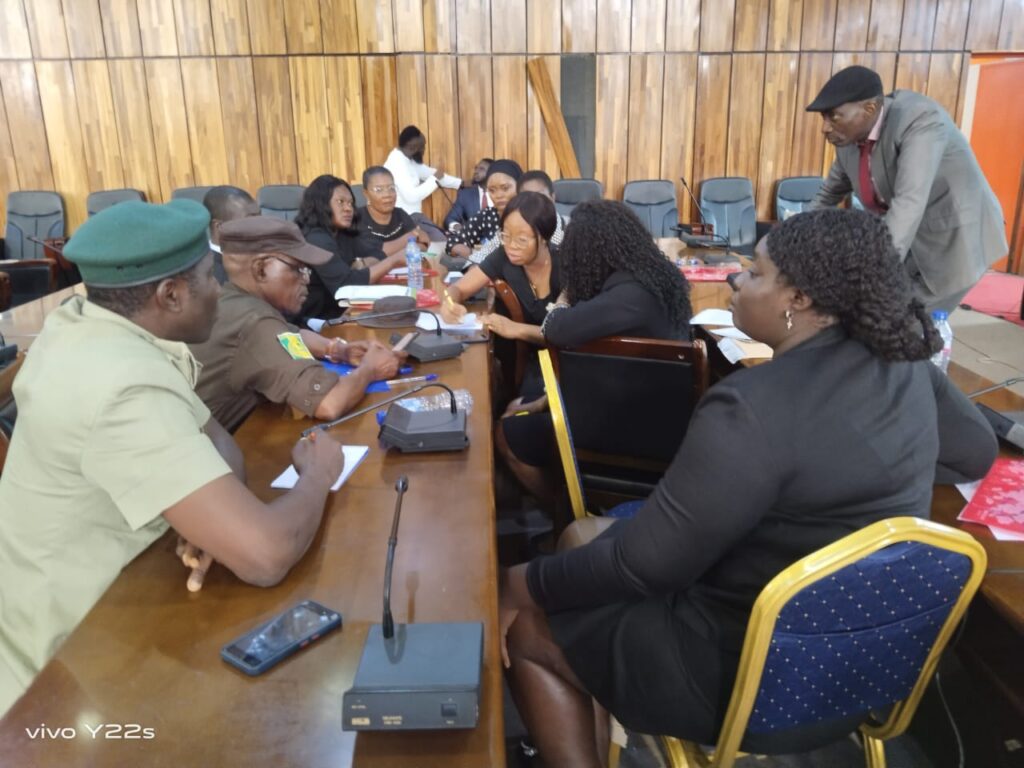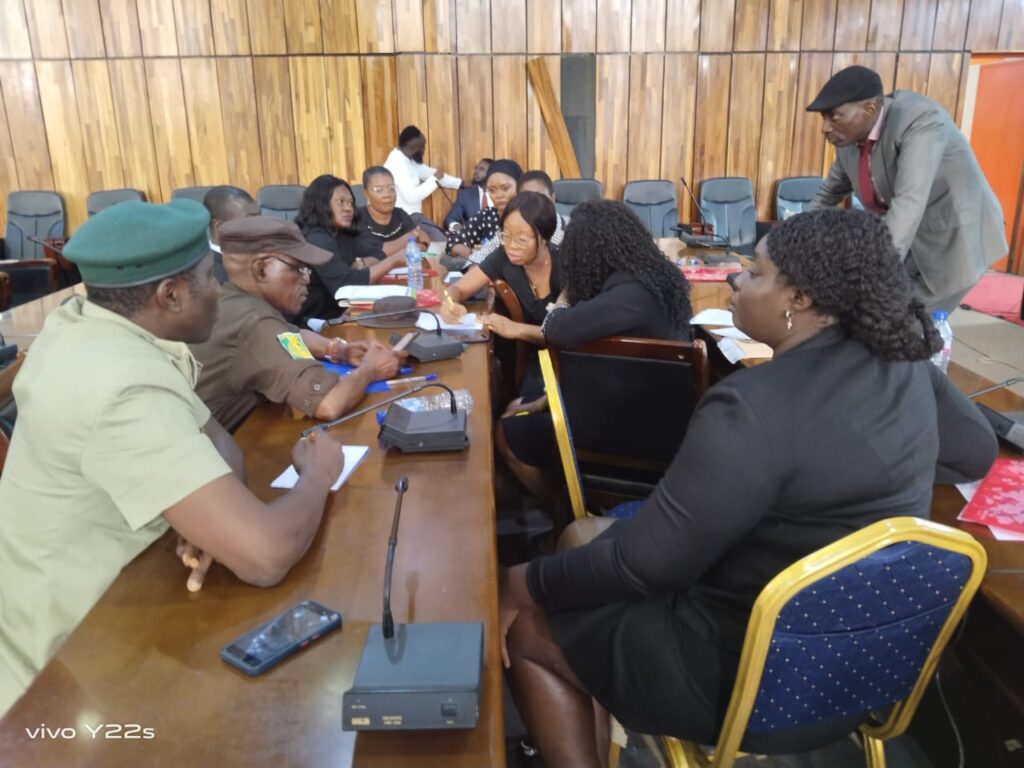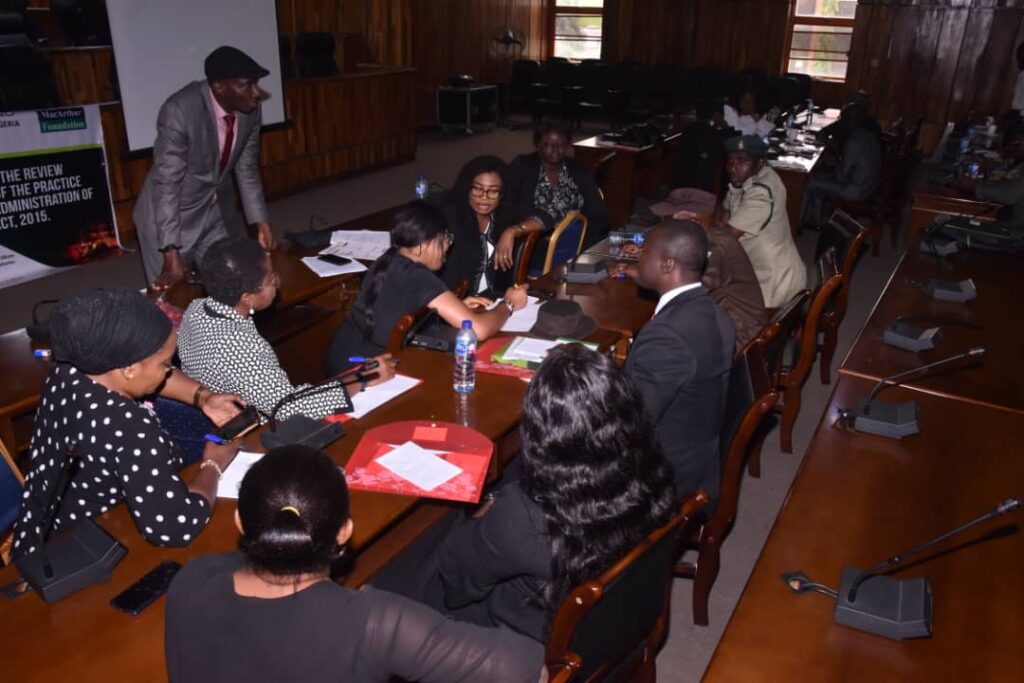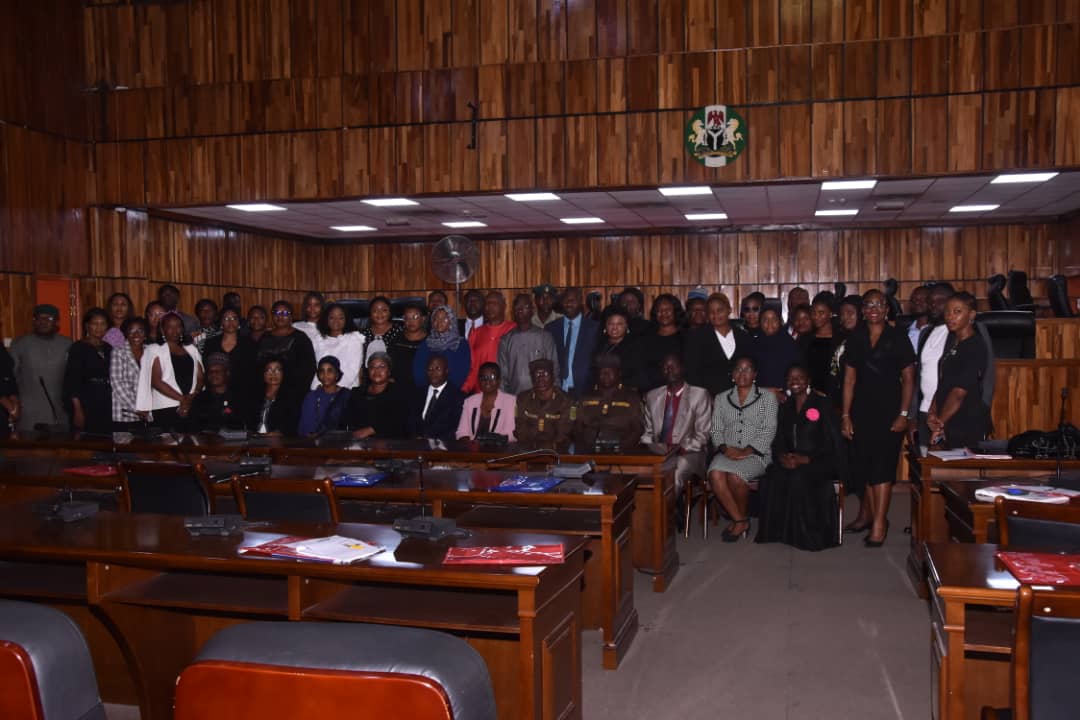Maureen Okpe
In a bid to strengthen the administration of criminal Justice System, stakeholders of the sector has collaborated to fashion out ways in ensuring effective administration of the Act.
This is as they brainstorm on Wednesday in Abuja, on ways to fast track particular cases that undermine the social and economic development of the nation, at a one day workshop on the review and validation of the Administration of Criminal Justice Act (ACJA) 2015 Practice direction, organised by FIDA Abuja with support from MacArthur Foundation.
The Executive Secretary, ACJA, Federal Ministry of Justice, Sulayman Dawodu, observed that over the years, several anti-corruption agencies have developed policies and strategies to implement the various directives but despite this legislation, corruption is as high as ever.
Dawodu said, “We want to strengthen collaborations between criminal justice actors in a way that it will deepen the criminal justice architecture and ensure the effective implementation of the ACJA.
“The objective is aimed at how corruption cases are being expedited within the criminal justice system and being specific, to prioritize corruption cases as the act has also provided amply provisions to deal with the expeditious files of criminal matters, although it is more on non compliance than compliance itself, so we needed to reconsider.
“It will also help if we have a policy document that speaks directly to the anti-corruption and issues of expeditious dispensation of criminal and corruption cases
“Somewhere along the line the court that deal with these cases need to take on board measures that will translate into effective implementation of the criminal justice act by having specific guidelines in handling these cases to ensure compliance, we must give all it takes to ensure that this nemesis is brought to a reasonable control as it cannot be totally eradicated.”
The Executive Secretary identified some practices for discussion that could be in place to expedite corruption cases which are, if a general or separate practice direction that speaks to trial should be in place, compartmentalization, digitalised court notification and virtual court, adding chosen practices should resolve issues and not create more.
“We take a bold step that will be functional and not just rolling out directions, ensure that we achieve the intending purpose of compliance and ensure that it speaks directly to the issue.
“The case management trash out all these issue to the extent of making enquiry to the visibility of evidence, that there will be no need going into witnesses such that once a trial has commenced no objections, issues of forensics will be entertained and the judge will be in control, to know what form of defense will be put forward, that way it shows that you do not ambush the judge. As this will go a long way in showing the credibility of the cases.
“These are measures that we have looked at to work an effective system for anti-corruption cases, therefore the need to compartmentalize all the cases as thIs will aid effectiveness, no matter how this seem to restrict our level of exposure to other laws, but there will be timely rotation from one place to the next but one can insist to stay within the criminal jurisdiction.
“The other area we are also looking at are virtual court, this will assist effective implementation of the dispensation of corruption cases,we will be looking at the separate order that covers virtual court and how we serve notification as this constitutes big challenge as sometime people come to court and are not aware that there will be no sitting that day, as speculation ongoing disclosed some bailiff under oath claim they serve notice but did not.
“A time to move from manual to digitalised notification to all parties involved at the same time, which is already ongoing in Nasarawa,Plateau and Kaduna, and this can make the CJ assign from anywhere, curbing delays as they are automatically notified.”
While fielding challenges from the various justice sector present, a personnel from the Legal Department Nigerian Police Force, Umoh Ena, faulted the case management system, noting it’s limitation.
Ena reiterated, “the importance of case management is for coordination and supervision the academic researchers from the national institute of legislative studies was limited only to judicial supervision which made it limiting, forgetting that the Criminal Justice System is not solely centered on the judiciary hence, they cannot function effectively looking at what case management is about.
“He questioned that, “at the magistrate level who supervises the excesses of the judge in terms of bail, fine and awarding punishment.According to him a magistrate should not handle a matter that he does not have jurisdiction.”
Speaking on witness funding, Ena said, “investigation of criminal matters are at the expense of the state, it is the duty of the state to fund it, but they have abandoned this duty and that is where corruption starts as the officer thinks of how he funds movement to court as a prosecutor.
“If the state is abandoning it’s duty what do we do, do we turn our back to criminal justice system? then the entire democratic principles is defeated, rule of law denied and the entire society living in chaos.”
“Virtual court is a novel and good innovation but how do you succeed to shake the credibility of the person on interrogation in his comfort zone through virtual evidence during cross examination this might beat the essence of the law. It is good but may not be attainable due to some factors.
“The ACJA is a good document but with alot of lacuna.
“When looking at solutions, there are moral, social and political, there are cultural and equally ethical, whether we like it or not. The expenses incurred are enormous,” he said.
On his part, Director Public Prosecution of the Federation, Ministry of Justice Muhammed Abubakar, said, the absence of prosecutors in the ministry is a major setback as when enforcement make arrest they may not have the background to what is needed to pursue the case.
Abubakar represented by the Deputy Director Public Prosecution of the Federation, Ministry of Justice, Yusuf Abdulqadir noted”World best practice is that during an arrest a prosecutor must be carried along. But sometimes it is very difficult for civilians to join military operations and because they do not know the rules some of the evidence that may be used to defend a case may be destroyed.
“Some of the time we rely on confessional statement being that we were not there when the arrest was made. The ministry do not have the e-system filling method. Although efforts are being made to better the system but we are still a long shot from where we need to be.”
Speaking on the project, FIDA Abuja Chairperson, Chibuzo Nwosu said, it seeks to build the capacity of criminal justice actors and institutions, as well as develop a legal framework and policy practice directions.
Nwosu stated that,”FIDA Nigeria is leading the vanguard for the review to expunge undue delay in the determination of corrupt cases, this direction will also compliment the ACJA towards aiding speedy dispensation of justice by fast tracking corruption cases.
“It is expected that at the end of the workshop a memorandum containing recommendation and solutions reached by stakeholders at this workshop shall be produced and validated at the next meeting.”
